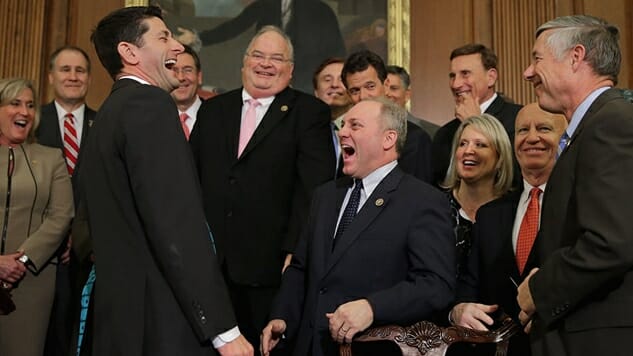Surprise, Surprise: New Documents Confirm the “Citizenship Question” Was a GOP Voter Suppression Strategy
Photo by Chip Somodevilla/Getty
New court documents released in an ongoing lawsuit against the Trump Administration revealed that its decision to add a citizenship question to the 2020 census may have been motivated by the voting advantages it would give to “Republicans and non-Hispanic whites.”
The smoking gun is an unpublished 2015 study authored by recently deceased GOP strategist Thomas Hofeller for the conservative journalism outfit The Washington Free Beacon. The New York Times once called Hofeller the “Michaelangelo of Gerrymandering,” and, accordingly, he held the title of Redistricting Consultant in the Republican National Committee.
The study explores how voting districts in Texas would be affected if districts were equally apportioned on “citizen voting age population” and not on total population, as is done currently. The study found that the hypothetical policy would reduce the number of districts in Texas’ blue-leaning regions (Houston, Dallas, El Paso) while doing the reverse in right-leaning ones (Central and West Texas). The study concludes that the new policy would weaken Democratic districts while “strengthening the adjoining GOP districts,” but admits that without a citizenship question on the 2020 census, the policy was impossible to implement. Census data is used to draw congressional districts and to distribute federal funding.
-

-

-

-

-

-

-

-

-

-

-

-

-

-

-

-

-

-

-

-

-

-

-

-

-

-

-

-

-

-

-

-

-

-

-

-

-

-

-

-








































